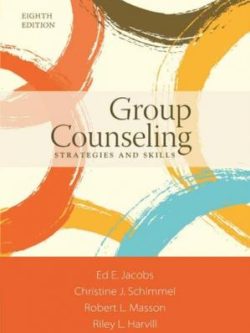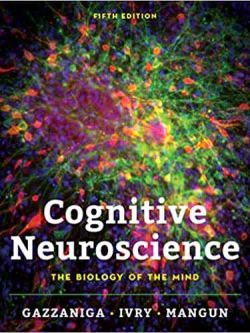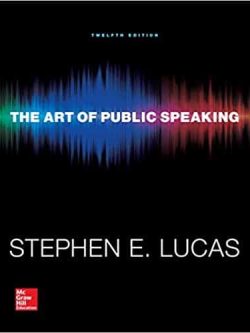Specifications
| book-author | Edward S. Neukrug (Author) |
|---|---|
| file-type | |
| isbn10 | 1305669053 |
| isbn13 | 978-1305669055 |
| language | English |
| publisher | Cengage Learning |
Book Description
**”A Brief Orientation to Counseling: Professional Identity, History, and Standards” (2nd Edition)** by Edward S. Neukrug is a concise and comprehensive guide designed to introduce students and new practitioners to the field of counseling. This book provides an overview of the fundamental aspects of counseling, including the development of a professional identity, the historical evolution of the field, ethical standards, and current trends. It is an ideal resource for those beginning their journey in counseling, offering foundational knowledge and insights into what it means to be a professional counselor. Here's a detailed description:
### **1. Introduction to Counseling as a Profession**
– **Definition and Purpose of Counseling:** The book begins by defining what counseling is and exploring its purpose and goals. It emphasizes the role of counseling in promoting mental health, personal growth, and well-being, and highlights the various settings in which counselors work, such as schools, private practices, community agencies, and hospitals.
– **Professional Identity:** This section discusses the importance of developing a strong professional identity as a counselor. It covers the core characteristics of effective counselors, including empathy, ethical practice, and commitment to professional development, and encourages students to reflect on their motivations for entering the field.
### **2. History of Counseling**
– **Evolution of the Field:** The book provides an overview of the historical development of counseling, tracing its roots from early practices in guidance and psychotherapy to the establishment of counseling as a distinct profession. It discusses key milestones, influential figures, and the emergence of various counseling theories and approaches.
– **The Impact of Historical Events:** This section explores how historical events, such as the rise of the mental health movement and legislative changes, have shaped the evolution of counseling. It highlights the field's response to societal needs and its ongoing adaptation to meet the demands of a changing world.
### **3. Counseling Theories and Approaches**
– **Overview of Major Theories:** The book introduces students to major counseling theories, including psychodynamic, humanistic, cognitive-behavioral, and integrative approaches. It provides a brief description of each theory’s key concepts, techniques, and applications in practice, helping students understand the diversity of thought within the field.
– **Selecting a Theoretical Orientation:** This section guides students in exploring their own theoretical orientation. It discusses the factors to consider when choosing a theory to guide practice, such as personal values, client needs, and the counselor’s professional goals.
### **4. Ethical and Legal Standards in Counseling**
– **Ethical Foundations:** The book emphasizes the importance of ethics in counseling practice. It provides an overview of the American Counseling Association (ACA) Code of Ethics and other relevant ethical guidelines, discussing principles such as confidentiality, informed consent, and dual relationships.
– **Navigating Legal Issues:** This section covers the legal aspects of counseling, including licensure, mandatory reporting, and professional liability. It highlights the importance of understanding and adhering to state and federal laws to protect clients and maintain professional integrity.
### **5. Professional Standards and Competencies**
– **Core Competencies:** The book outlines the core competencies required for effective counseling practice, including communication skills, cultural competence, and crisis intervention. It provides practical tips for developing these skills and emphasizes the importance of ongoing self-assessment and professional growth.
– **Accreditation and Certification:** This section discusses the role of accreditation bodies, such as the Council for Accreditation of Counseling and Related Educational Programs (CACREP), in ensuring the quality of counseling education. It also covers the process of obtaining certification and licensure as a counselor.
### **6. Cultural Competence and Diversity**
– **Understanding Diversity:** The book emphasizes the importance of cultural competence in counseling, discussing how factors such as race, ethnicity, gender, sexual orientation, and socioeconomic status influence clients' experiences and worldviews. It provides strategies for working effectively with diverse populations and highlights the need for cultural humility.
– **Addressing Bias and Prejudice:** This section encourages counselors to reflect on their own biases and stereotypes and to actively work toward minimizing their impact on the therapeutic relationship. It discusses the importance of creating an inclusive and respectful environment for all clients.
### **7. Current Trends and Future Directions in Counseling**
– **Emerging Issues:** The book explores current trends and challenges in the field of counseling, including the integration of technology in practice, the increasing focus on evidence-based treatments, and the growing recognition of mental health in public health policy. It discusses how these trends are shaping the future of the profession and what they mean for new counselors.
– **Advocacy and Social Justice:** This section highlights the role of counselors as advocates for social change. It encourages counselors to engage in advocacy efforts to promote mental health awareness, reduce stigma, and ensure equitable access to services.
### **8. Building a Career in Counseling**
– **Professional Development:** The book provides guidance on building a successful career in counseling, including strategies for networking, continuing education, and finding a mentor. It emphasizes the importance of lifelong learning and staying current with advancements in the field.
– **Self-Care for Counselors:** Recognizing the emotional demands of counseling, this section offers strategies for maintaining personal well-being and preventing burnout. It encourages counselors to prioritize self-care and seek support when needed.
### **9. Resources and Appendices**
– **Supplemental Resources:** The book includes a variety of supplemental resources, such as recommended readings, professional organizations, and web links, to support further exploration of counseling topics.
– **Appendices:** The appendices provide additional tools and resources, including sample ethical dilemmas, case studies, and self-assessment checklists, to help students apply their learning in practical scenarios.
**”A Brief Orientation to Counseling: Professional Identity, History, and Standards” (2nd Edition)** by Edward S. Neukrug is an essential resource for students and new professionals in the field of counseling. By providing a comprehensive overview of the profession, ethical standards, and current trends, this book equips readers with the foundational knowledge and skills needed to develop a strong professional identity and succeed in their careers as counselors.











Reviews
There are no reviews yet.